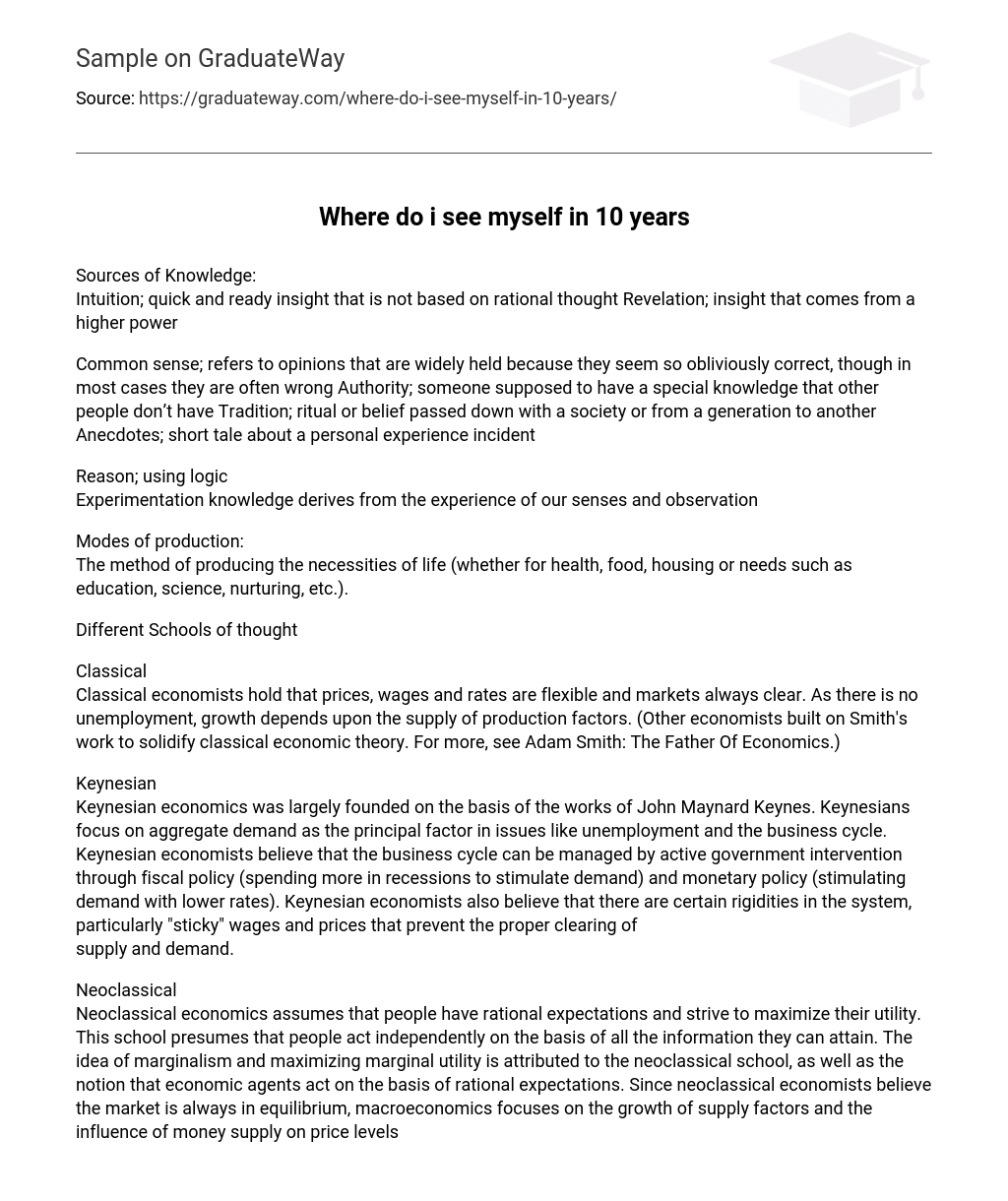Sources of Knowledge:
Intuition; quick and ready insight that is not based on rational thought Revelation; insight that comes from a higher power
Common sense; refers to opinions that are widely held because they seem so obliviously correct, though in most cases they are often wrong Authority; someone supposed to have a special knowledge that other people don’t have Tradition; ritual or belief passed down with a society or from a generation to another Anecdotes; short tale about a personal experience incident
Reason; using logic
Experimentation knowledge derives from the experience of our senses and observation
Modes of production:
The method of producing the necessities of life (whether for health, food, housing or needs such as education, science, nurturing, etc.).
Different Schools of thought
Classical
Classical economists hold that prices, wages and rates are flexible and markets always clear. As there is no unemployment, growth depends upon the supply of production factors. (Other economists built on Smith’s work to solidify classical economic theory. For more, see Adam Smith: The Father Of Economics.)
Keynesian
Keynesian economics was largely founded on the basis of the works of John Maynard Keynes. Keynesians focus on aggregate demand as the principal factor in issues like unemployment and the business cycle. Keynesian economists believe that the business cycle can be managed by active government intervention through fiscal policy (spending more in recessions to stimulate demand) and monetary policy (stimulating demand with lower rates). Keynesian economists also believe that there are certain rigidities in the system, particularly “sticky” wages and prices that prevent the proper clearing of
supply and demand.
Neoclassical
Neoclassical economics assumes that people have rational expectations and strive to maximize their utility. This school presumes that people act independently on the basis of all the information they can attain. The idea of marginalism and maximizing marginal utility is attributed to the neoclassical school, as well as the notion that economic agents act on the basis of rational expectations. Since neoclassical economists believe the market is always in equilibrium, macroeconomics focuses on the growth of supply factors and the influence of money supply on price levels





